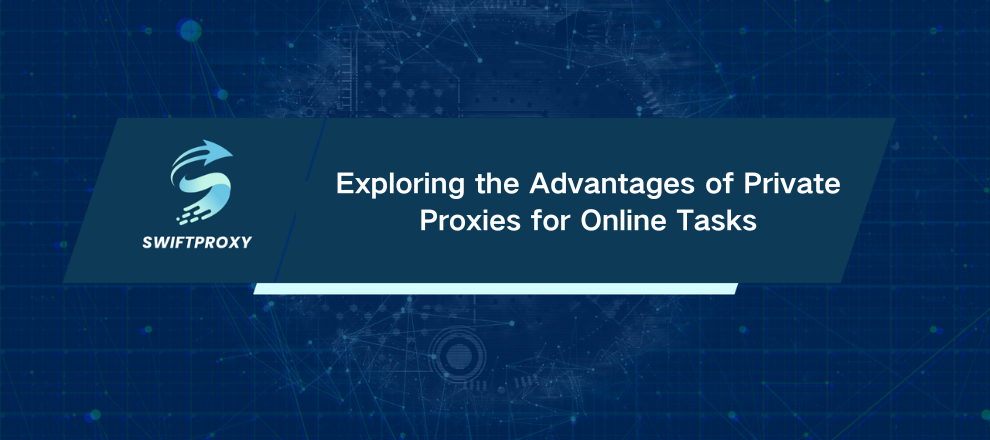Exploring the Advantages of Private Proxies for Online Tasks
Every click you make online leaves a trace. Some traces are harmless, some aren’t. And if you value your privacy—or rely on the internet for critical tasks—leaving traces isn’t an option. That’s where private proxies come in. They hide your IP address, making it nearly impossible for anyone to track your browsing. But they don’t just protect you—they keep things fast, efficient, and under your control. Other privacy tools exist, like VPNs. They work—but often at the cost of speed. Laggy streams, slow data scraping, and frustrating delays are common. Private proxies solve this. You stay anonymous without giving up performance. If you’re unsure whether private proxies are worth it, this guide is for you. We’ll break down what they are, how they work, the benefits, and exactly how to use them for maximum impact.

Introduction to Private Proxy
A private proxy is your personal gateway to the internet. Unlike public proxies, which are shared among countless users, private proxies give you dedicated IP addresses. One user. One IP. No sharing, no compromises.
This single-user setup ensures privacy while maintaining speed. You're not slowed down by other people's activity. It's clean. It's efficient. And it's exactly what professionals, researchers, and privacy-conscious users are looking for.
The Mechanism of Private Proxies
Think of a proxy as a middleman between you and the websites you visit. When you request a webpage, the proxy sends it on your behalf. The site sees the proxy's IP, not yours.
Private proxies take this a step further. The IP is dedicated to you. Nobody else uses it. That means faster connections, enhanced privacy, and less risk of getting flagged or blocked. Some providers even let you rotate IPs automatically, adding another layer of security and anonymity.
Why Use a Private Proxy
Here's what makes private proxies stand out:
Privacy and Security: Your real IP stays hidden, and your location is invisible. Perfect for safe browsing or sensitive tasks.
Performance: Unlike shared proxies or VPNs, private proxies maintain high speeds—essential for streaming, scraping, or heavy browsing.
Lower Risk of IP Bans: With dynamic IP rotation, you can scrape data, monitor competitors, or manage multiple accounts without constant interruptions.
Peace of Mind: Knowing your IP is exclusively yours reduces worry. Other users aren't doing risky things with your online identity.
How Individuals Benefit
Streaming without restrictions: Access content in any location you choose.
Access blocked sites: Get around regional restrictions without hassle.
Travel research: Check local services and deals before you arrive.
Stay informed: Read regional news and updates from anywhere in the world.
Business Applications
Data scraping: Collect information without worrying about IP blocks.
Competitor analysis: Track pricing and strategies in target markets.
Ad verification: See ads exactly as locals do.
Social media management: Monitor trends worldwide to craft better campaigns.
SEO monitoring: Track keyword performance across different regions.
The Differences Between Shared Proxies and Private Proxies
Shared proxies are cheap, but you share the IP with multiple users. Performance dips, and privacy isn't guaranteed.
Private proxies? One IP per user. Maximum speed. Full control. Minimal risk of bans. Yes, they're costlier, but the investment pays off in reliability and peace of mind.
How to Choose the Right Private Proxy
Before buying, keep these in mind:
Provider Reputation: Research reviews. Trust matters.
Performance: Select IPs in regions where speed is critical.
Region: Match IP locations to your specific needs.
Free vs Paid: Free proxies often monetize your data. Invest in privacy.
Proxy Type: Decide between residential, datacenter, or mobile proxies depending on your tasks.
Final Thoughts
Private proxies are a game-changer for anyone serious about online privacy and efficiency. They give you a dedicated IP, safeguard your data, and keep your tasks running smoothly. Sure, they cost a bit more than shared options—but the control, speed, and security are priceless.

















































